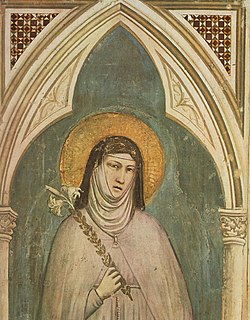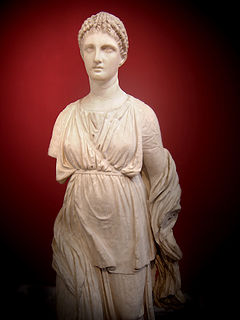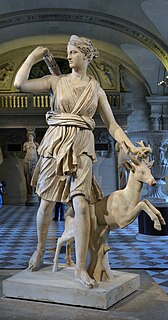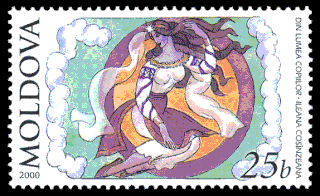 W
WAmalia is a female given name, derived from the Germanic word amal, meaning "work, activity", specifically the woman's name Amalberga. Its popularity is attributed to the Belgian Saint Amalberga of Maubeuge. The origins of the name Amalia have often been associated with those of Emilia and Emily, both of which in fact originate from the Latin nomen Aemilia, or with Amalthea, originate from the Greek name "tender goddess". In Greece, the name is celebrated on 10 July in honour of Saint Amalia.
 W
WAngela is a female given name. The origin of the name is Latin and its background is Christian. It is derived from the Greek word ángelos (ἄγγελος), meaning angel or "messenger of God". In the United States, the name "Angela" was at its most popular between 1965 and 1979, when it was ranked among the top 10 names for girls. Since 1900 in America, it has been ranked among the 300 most popular names. It has been falling from its peak of popularity, and had fallen to 256th by 2019. The variation Angelina was ranked as the 69th most popular name in 2008 in the United States, while Angel was ranked 160th.
 W
WBeatrice is a name derived from the French name Béatrice, which came from the Latin Beatrix, which means "she who makes happy".
 W
WBianca is a feminine given name. It means "white" and is an Italian cognate of Blanche.
 W
WBianca Maria is a feminine given name, a combination of the Italian name Bianca, which means "white" and is a cognate of the medieval name Blanche and of Maria, a Latin form of the Greek name Μαριαμ or Mariam or Maria, found in the New Testament. The combination name Bianca Maria was the name of early queens or noble women such as Bianca Maria Sforza and Bianca Maria Visconti. The name is still well-used in Italy and Romania, among other countries.
 W
WClara or Klara is a female given name. It is the feminine form of the Late Latin name Clarus which meant "clear, bright, famous". Various early male Christian saints were named Clarus; the feminine form became popular after the 13th-century Saint Clare of Assisi, one of the followers of Saint Francis, who renounced her privileged background and founded the order of Poor Clares.
 W
WDaria or Darya is a traditional Russian female name, also used in some other predominantly Eastern Orthodox countries in Europe.
 W
WDelia is a feminine given name, either taken from an epithet of the Greek moon goddess Artemis, or else representing a short form of Adelia, Bedelia, Cordelia or Odelia.
 W
WDiana is a feminine given name of Italian origin.Diana translates to Artemis from Latin.
 W
WDolores is a feminine given name of Spanish origin.
 W
WEleanor is a feminine given name, originally from an Old French adaptation of the Old Provençal name Aliénor. It is the name of a number of women of the high nobility in western Europe during the High Middle Ages. The name was introduced to England by Eleanor of Aquitaine, who came to marry King Henry II. It was also borne by Eleanor of Provence, who became Queen consort of England as the wife of King Henry III, and Eleanor of Castile, wife of Edward I.
 W
WFlavia is an Ancient Roman name meaning “blonde” from the Latin word “flavus”, meaning “golden, blonde”. It is a feminine form of the Roman family name Flavius. The name is most commonly used in Italy, Romania, Brazil and in Spanish-speaking countries. It is rarely used in the United States, but was given to 11 newborn American girls in 2010 and 12 American girls born in 2011.
 W
WIleana is a female given name. It is the feminine form of the male name Elijah. It has been adapted for Romanian, Bulgarian, Macedonian, Italian and Spanish. In Romanian it is a form of the name "Helen", and a hypocoristic for Ileana is Nuţi. In Romanian mythology, Ileana Cosânzeana is a mythological feminine figure represented as a beautiful good-natured princess, embodying the concept of feminine beauty. Ileana or Illeana may refer to:
 W
WLaura is a female given name in Europe and the Americas, of Latin origin, whose meaning is a metonym for a victor, and an early hypocorism from Laurel and Lauren.
 W
WMagdalena is the original version of the given name Magdalene, and is used in West Slavic, Hungarian, German, Lithuanian, Dutch, Swedish, Norwegian, Spanish, Georgian, and among other languages.
 W
WMiriam is a feminine given name recorded in Biblical Hebrew, recorded in the Book of Exodus as the name of the sister of Moses, the prophetess Miriam.
 W
WRachel, meaning "ewe", is a feminine given name. It is best known as the name of Biblical Rachel.
 W
WSophia, also spelled Sofia, is a feminine given name, from Greek Σοφία, Sophía, "Wisdom". Diminutive forms include Sophie and Sofie. The given name is first recorded in the beginning of the 4th century. It is a common female name in the Eastern Orthodox countries. It became very popular in the West beginning in the later 1990s and became one of the most popularly given girls' names in the Western world during the 2010s.
 W
WVeronica is a female given name, the Latin transliteration of the Greek name Berenice, Βερενίκη, which in turn is derived from the Macedonian form of the Athenian Φερενίκη, Phereníkē, or Φερονίκη, Pheroníkē, from φέρειν, phérein, to bring, and νίκη, níkê, "victory", i.e. "she who brings victory".
 W
WVictoria is an Indo-European feminine first name. It is also used as a family name.
 W
WVirginia is a Germanic and Romance feminine given name derived from the Ancient Roman family name Verginius or Virginius, a name widely assumed to derive from the Latin word virgo, meaning "maiden" or "virgin." According to legend, Virginia was a Roman girl who was killed by her father in order to save her from seduction by the corrupt government official Appius Claudius Crassus.